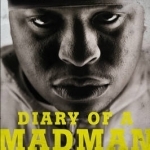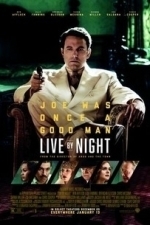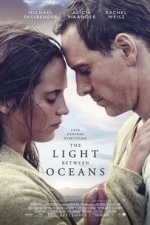Search

Diary of a Madman: The Geto Boys, Life, Death, and the Roots of Southern Rap
Brad "Scarface" Jordan and Benjamin Meadows Ingram
Book
One of Rolling Stone's Best Music Books of 2015 From Geto Boys legend and renowned storyteller...

4WD Maps | Hema Australia Offline Topo Maps
Navigation and Travel
App
Offline 4WD maps for exploring Australia using your iPhone or iPad without an Internet connection. ...
Jerry Cantrell recommended Tumbleweed Connection by Elton John in Music (curated)

Barbecue Recipes HD
Food & Drink and Lifestyle
App
The trick to making your BBQ food tasting great is using flavors that you like as well as using good...
Bob Mann (459 KP) rated Live By Night (2017) in Movies
Sep 29, 2021
“Sleep by day…”.
Ben Affleck’s new movie could best be described as “sprawling”. In both directing and writing the screenplay (based on a novel by Dennis Lehane), Affleck has aimed for a “Godfather” style gangster epic and missed: not missed by a country mile, but missed nonetheless.
Morally bankrupted by his experiences in the trenches, Joe Coughlin (Affleck) returns to Boston to pick and choose which social rules he wants to follow. Not sociopathic per se, as he has a strong personal code of conduct, but Coughlin turns to robbery walking a delicate path between the warring mob factions of the Irish community, led by Albert White (the excellent Robert Glenister from TV’s “Hustle”), and the Italian community, led by Maso Pescatore (Remo Girone). Trying to keep him out of jail is his father (“Harry Potter”’s Brendan Gleeson) who – usefully – is the Deputy Police Chief. Life gets complicated when he falls in love with White’s moll, Emma Gould (Sienna Miller). The scene is set for a drama stretching from Boston to the hot and steamy Everglades over a period of the next twenty years.
Although a watchable popcorn film, the choppy episodic nature of the movie is hugely frustrating, with no compelling story arc to glue all of the disparate parts together. The (often very violent) action scenes are very well done and exciting but as a viewer you don’t feel invested in a ‘journey’ from the beginning of the film to the (unsatisfactory) ending. In my experience it’s never a good sign when the writer considers it necessary to add a voiceover to the soundtrack, and here Affleck mutters truisms about his thoughts and motives that irritate more than illuminate.
The sheer volume of players in the piece (there are about three film’s worth in here) and the resulting minimal screen time given to each allows no time for character development. Unfortunately the result is that you really care very little about whether people live or die and big plot developments land as rather an “oh” than an “OH!”.
Affleck puts in a great turn as the autistic central character whose condition results in a cold, calculating demeanor and a complete lack of emotion reflecting on his face. Oh, hang on… no, wait a minute… sorry… I’ve got the wrong film…. I’m thinking about “The Accountant”. I don’t know whether he filmed these films in parallel. I generally enjoy Ben Affleck’s work (he was excellent in “The Town”) but for 95% of this film his part could have been completed by a burly extra with an Affleck mask on. In terms of acting range, his facial muscles barely get to a “2” on the scale. Given the double problem that he is barely credible as the “young man” returning mentally wounded from the trenches, then in my opinion he would have been better to have focused on the writing and directing and found a lead of the likes of an Andrew Garfield to fill Coughlin’s shoes.
That’s not to say there is not some good acting present in the rest of the cast’s all too brief supporting roles. Elle Fanning (“Trumbo”, “Maleficent”) in particular shines as the Southern belle Loretta Figgis: a religious zealot driving her police chief father (Chris Cooper, “The Bourne Identity”) to distraction. Cooper also delivers a star turn as the moral but pragmatic law-man.
Sienna Miller (“Foxcatcher”) delivers a passable Cork accent and does her best to develop some believable chemistry with the rock-like Affleck. Zoe Saldana (“Star Trek”) is equally effective as a Cuban humanitarian.
In summary, it’s sprawlingly watchable… but overall a disappointment, with Affleck over-reaching. One day we surely will get a gangster film the likes of another “Godfather”, “Goodfellas” or “Untouchables”. Although this has its moments, unfortunately it’s more towards the “Public Enemies” end of the genre spectrum.
Morally bankrupted by his experiences in the trenches, Joe Coughlin (Affleck) returns to Boston to pick and choose which social rules he wants to follow. Not sociopathic per se, as he has a strong personal code of conduct, but Coughlin turns to robbery walking a delicate path between the warring mob factions of the Irish community, led by Albert White (the excellent Robert Glenister from TV’s “Hustle”), and the Italian community, led by Maso Pescatore (Remo Girone). Trying to keep him out of jail is his father (“Harry Potter”’s Brendan Gleeson) who – usefully – is the Deputy Police Chief. Life gets complicated when he falls in love with White’s moll, Emma Gould (Sienna Miller). The scene is set for a drama stretching from Boston to the hot and steamy Everglades over a period of the next twenty years.
Although a watchable popcorn film, the choppy episodic nature of the movie is hugely frustrating, with no compelling story arc to glue all of the disparate parts together. The (often very violent) action scenes are very well done and exciting but as a viewer you don’t feel invested in a ‘journey’ from the beginning of the film to the (unsatisfactory) ending. In my experience it’s never a good sign when the writer considers it necessary to add a voiceover to the soundtrack, and here Affleck mutters truisms about his thoughts and motives that irritate more than illuminate.
The sheer volume of players in the piece (there are about three film’s worth in here) and the resulting minimal screen time given to each allows no time for character development. Unfortunately the result is that you really care very little about whether people live or die and big plot developments land as rather an “oh” than an “OH!”.
Affleck puts in a great turn as the autistic central character whose condition results in a cold, calculating demeanor and a complete lack of emotion reflecting on his face. Oh, hang on… no, wait a minute… sorry… I’ve got the wrong film…. I’m thinking about “The Accountant”. I don’t know whether he filmed these films in parallel. I generally enjoy Ben Affleck’s work (he was excellent in “The Town”) but for 95% of this film his part could have been completed by a burly extra with an Affleck mask on. In terms of acting range, his facial muscles barely get to a “2” on the scale. Given the double problem that he is barely credible as the “young man” returning mentally wounded from the trenches, then in my opinion he would have been better to have focused on the writing and directing and found a lead of the likes of an Andrew Garfield to fill Coughlin’s shoes.
That’s not to say there is not some good acting present in the rest of the cast’s all too brief supporting roles. Elle Fanning (“Trumbo”, “Maleficent”) in particular shines as the Southern belle Loretta Figgis: a religious zealot driving her police chief father (Chris Cooper, “The Bourne Identity”) to distraction. Cooper also delivers a star turn as the moral but pragmatic law-man.
Sienna Miller (“Foxcatcher”) delivers a passable Cork accent and does her best to develop some believable chemistry with the rock-like Affleck. Zoe Saldana (“Star Trek”) is equally effective as a Cuban humanitarian.
In summary, it’s sprawlingly watchable… but overall a disappointment, with Affleck over-reaching. One day we surely will get a gangster film the likes of another “Godfather”, “Goodfellas” or “Untouchables”. Although this has its moments, unfortunately it’s more towards the “Public Enemies” end of the genre spectrum.
Bob Mann (459 KP) rated The Light Between Oceans (2016) in Movies
Sep 29, 2021
“You only have to forgive once. To resent, you have to do it all day, every day”.
In my review of “The Two Faces of January” I described it as a film that “will be particularly enjoyed by older viewers who remember when story and location were put far ahead of CGI-based special effects”. In watching this film I was again linking in my mind to that earlier film… and that was before the lead character suddenly brought up the two faces of Janus!
For this is a good old-fashioned weepy melodrama: leisurely, character based and guaranteed to give the tear ducts a good old cleaning out.
It’s 1918 and Michael Fassbender plays Tom Sherbourne, a damaged man seeking solitude and reflection after four years of hell in the trenches. As a short-term job he takes the post of lighthouse keeper on the isolated slab of rock called Janus – sat between two oceans (presumably as this is Western Australia, the Indian and the Southern Oceans). The isolation of the job previously sent his predecessor off his trolley.
En route to his workplace he is immediately attracted to headmaster’s daughter Isabel (Alicia Vikander) who practically THROWS herself at Tom (the hussy), given that they only have snatches of a day at a time to be together during shore leave. Tom falls for her (as a hot blooded man, and with Vikander’s performance, this is entirely believable!) and the two marry to retire to their ‘fortress of solitude’ together to raise a family and live happily ever after…. or not… For the path of true motherhood runs not smoothly for poor Isabel, and a baby in a drifting boat spells both joy and despair for the couple as the story unwinds.
(I’ll stop my synopsis there, since I think the trailer – and other reviews I’ve read – give too much away).
While Fassbender again demonstrates what a mesmerising actor he is, the acting kudos in this one really goes again to Vikander, who pulls out all the stops in a role that demands fragility, naivety, resentment, anger and despair across its course. While I don’t think the film in general will trouble the Oscars, this is a leading actress performance that I could well see nominated. In a supporting role, with less screen-time, is Rachel Weisz who again needs to demonstrate her acting stripes in a demanding role. (Also a shout-out to young Florence Clery who is wonderfully naturalistic as the 4 year old Lucy-Grace.)
So this is a film with a stellar class, but it doesn’t really all gel together satisfyingly into a stellar – or at least particularly memorable – movie. After a slow start, director Derek Cianfrance (“The Place Beyond the Pines”) ladles on the melodrama interminably, and over a two hour running time the word overwrought comes to mind.
The script (also by Cianfrance, from the novel by M.L.Stedman) could have been tightened up, particularly in the first reel, and the audience given a bit more time to reflect and absorb in the second half.
The film is also curiously ‘place-less’. I assumed this was somewhere off Ireland until someone suddenly starting singing “Waltzing Matilda” (badly) and random people started talking in Aussie accents: most strange.
Cinematography by Adam Arkapaw (“Macbeth”) is also frustratingly inconsistent. The landscapes of the island, steam trains, sunsets and the multiple boatings in between is just beautiful (assisted by a delicate score by the great Alexandre Desplat which is well used) but get close up (and the camera does often get VERY close up) and a lack of ‘steadicam’ becomes infuriating, with faces dancing about the screen and – in one particular scene early on – wandering off on either side with the camera apparently unsure which one to follow!
A memorable cinema experience only for Vikander’s outstanding performance. Now where are those tissues…
For this is a good old-fashioned weepy melodrama: leisurely, character based and guaranteed to give the tear ducts a good old cleaning out.
It’s 1918 and Michael Fassbender plays Tom Sherbourne, a damaged man seeking solitude and reflection after four years of hell in the trenches. As a short-term job he takes the post of lighthouse keeper on the isolated slab of rock called Janus – sat between two oceans (presumably as this is Western Australia, the Indian and the Southern Oceans). The isolation of the job previously sent his predecessor off his trolley.
En route to his workplace he is immediately attracted to headmaster’s daughter Isabel (Alicia Vikander) who practically THROWS herself at Tom (the hussy), given that they only have snatches of a day at a time to be together during shore leave. Tom falls for her (as a hot blooded man, and with Vikander’s performance, this is entirely believable!) and the two marry to retire to their ‘fortress of solitude’ together to raise a family and live happily ever after…. or not… For the path of true motherhood runs not smoothly for poor Isabel, and a baby in a drifting boat spells both joy and despair for the couple as the story unwinds.
(I’ll stop my synopsis there, since I think the trailer – and other reviews I’ve read – give too much away).
While Fassbender again demonstrates what a mesmerising actor he is, the acting kudos in this one really goes again to Vikander, who pulls out all the stops in a role that demands fragility, naivety, resentment, anger and despair across its course. While I don’t think the film in general will trouble the Oscars, this is a leading actress performance that I could well see nominated. In a supporting role, with less screen-time, is Rachel Weisz who again needs to demonstrate her acting stripes in a demanding role. (Also a shout-out to young Florence Clery who is wonderfully naturalistic as the 4 year old Lucy-Grace.)
So this is a film with a stellar class, but it doesn’t really all gel together satisfyingly into a stellar – or at least particularly memorable – movie. After a slow start, director Derek Cianfrance (“The Place Beyond the Pines”) ladles on the melodrama interminably, and over a two hour running time the word overwrought comes to mind.
The script (also by Cianfrance, from the novel by M.L.Stedman) could have been tightened up, particularly in the first reel, and the audience given a bit more time to reflect and absorb in the second half.
The film is also curiously ‘place-less’. I assumed this was somewhere off Ireland until someone suddenly starting singing “Waltzing Matilda” (badly) and random people started talking in Aussie accents: most strange.
Cinematography by Adam Arkapaw (“Macbeth”) is also frustratingly inconsistent. The landscapes of the island, steam trains, sunsets and the multiple boatings in between is just beautiful (assisted by a delicate score by the great Alexandre Desplat which is well used) but get close up (and the camera does often get VERY close up) and a lack of ‘steadicam’ becomes infuriating, with faces dancing about the screen and – in one particular scene early on – wandering off on either side with the camera apparently unsure which one to follow!
A memorable cinema experience only for Vikander’s outstanding performance. Now where are those tissues…


